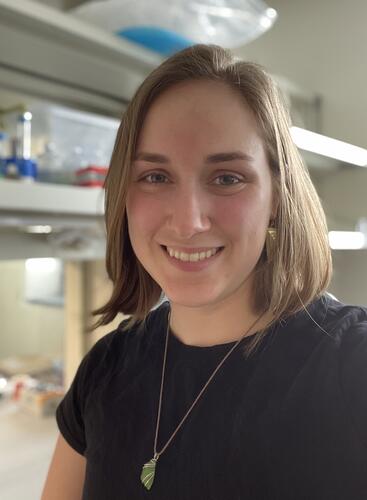
Catharine Shipps, a fourth-year Molecular Biophysics and Biochemistry (MB&B) student in the Malvankar Lab at the Microbial Sciences Institute, has been awarded the 2021 Annie Le Fellowship. This fellowship is awarded to students who have demonstrated leadership or service to the Yale and the New Haven community, an exemplary record of academic achievement, and outstanding interpersonal skills.
Catharine is also affiliated with the Yale Graduate Program in Physical and Engineering Biology (PEB), where she regularly participates in outreach events. She also promotes outreach and mentorship for the National Science Foundation Research Experiences for Undergraduates (NSF REU) program in the biomedical science and engineering program at Yale. Catharine participates in many programs that focus on diversity and inclusion, including the Biological and Biomedical Sciences Diversity Preview Weekend and the anonymization of MB&B faculty applications, which aims to remove biases from the hiring process. Congratulations to Catharine on all of her service and for receiving this well-deserved award.
Catharine’s research focuses on the electrical and optical properties of proteins and living materials in order to engineer new classes of biomaterials for artificial photosynthesis and biomedical purposes. Her recently published work in the journal PNAS suggests that stacked aromatic amino acids can act as escape routes for damaging ‘holes’ which accumulate as a part of oxidative stress in proteins. By using 4-probe conductivity measurements, which enabled artifact-free measurements of electron transport rates, the Malvankar group demonstrated that tyrosines can act as a conducting pathway for holes over micrometers and that the efficiency of the pathway is modulated by the surrounding protein environment. Catharine’s further research objective examines the electrical properties of the novel cytochrome nanowires produced by electric bacteria Geobacter sulfurreduces. By studying the nanowires, she aims to earn how to enhance their conductivity by genetic or chemical modifications and to use manipulation of nanowires to tune the properties of living bacterial biofilms.